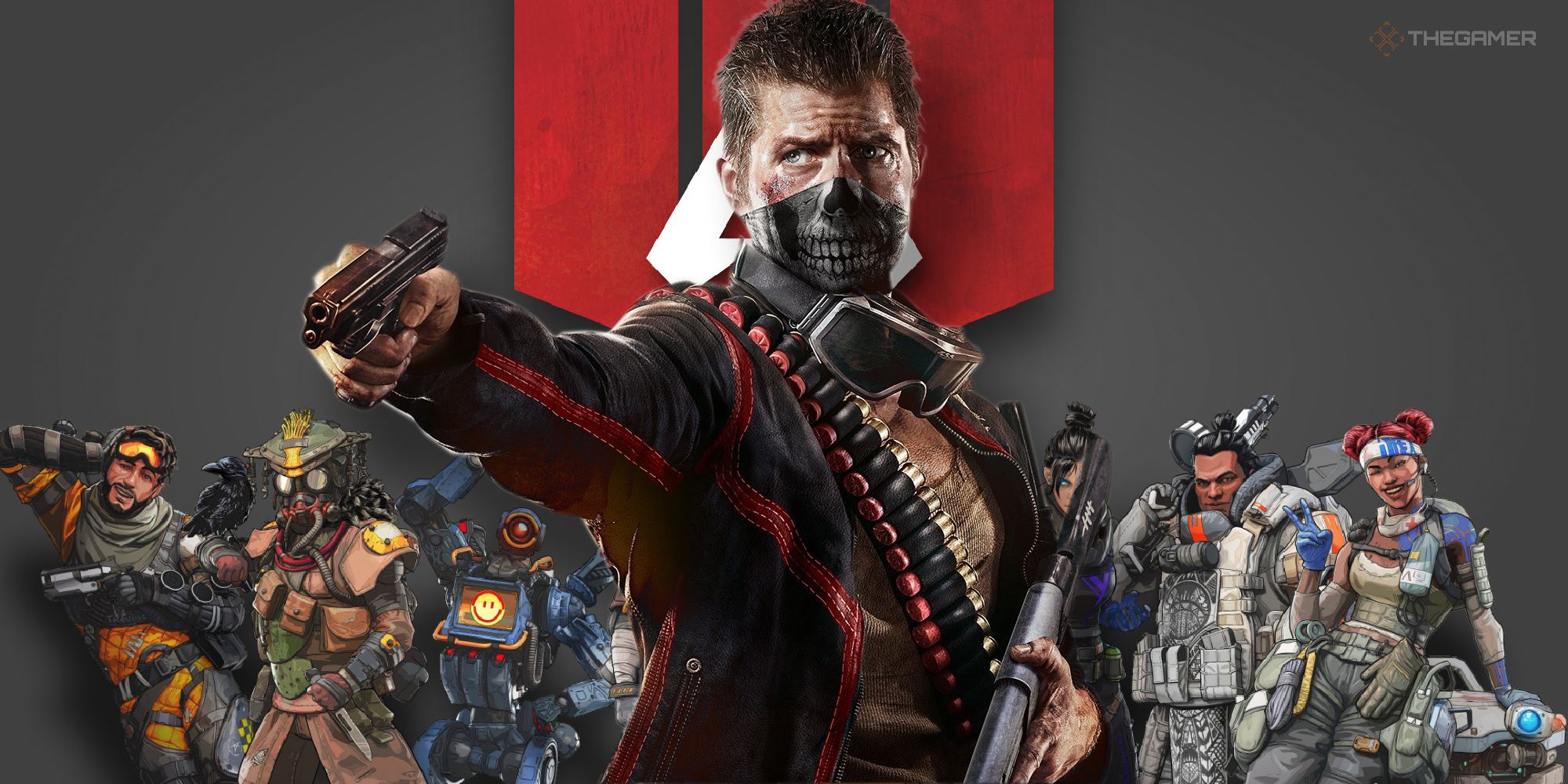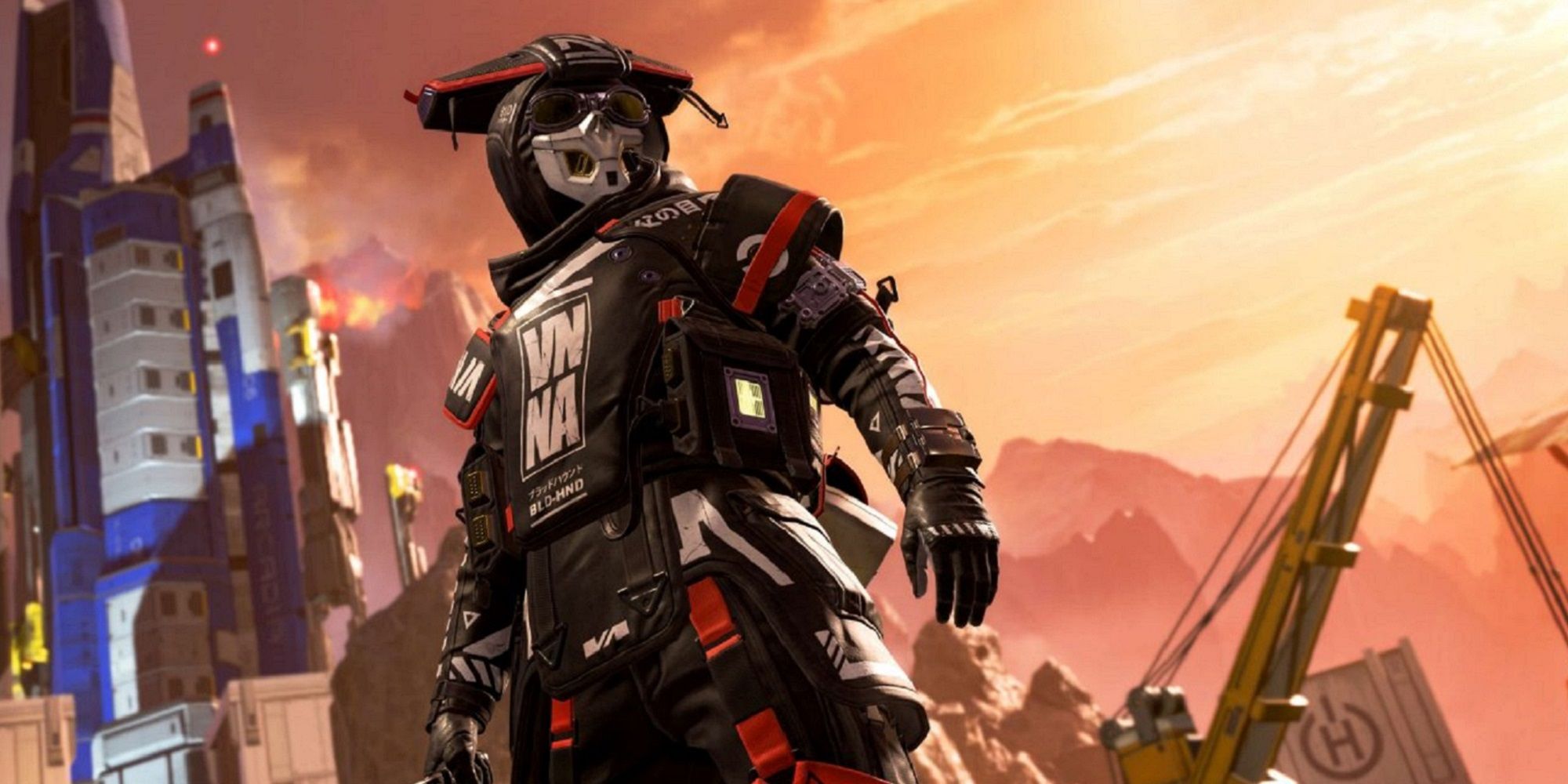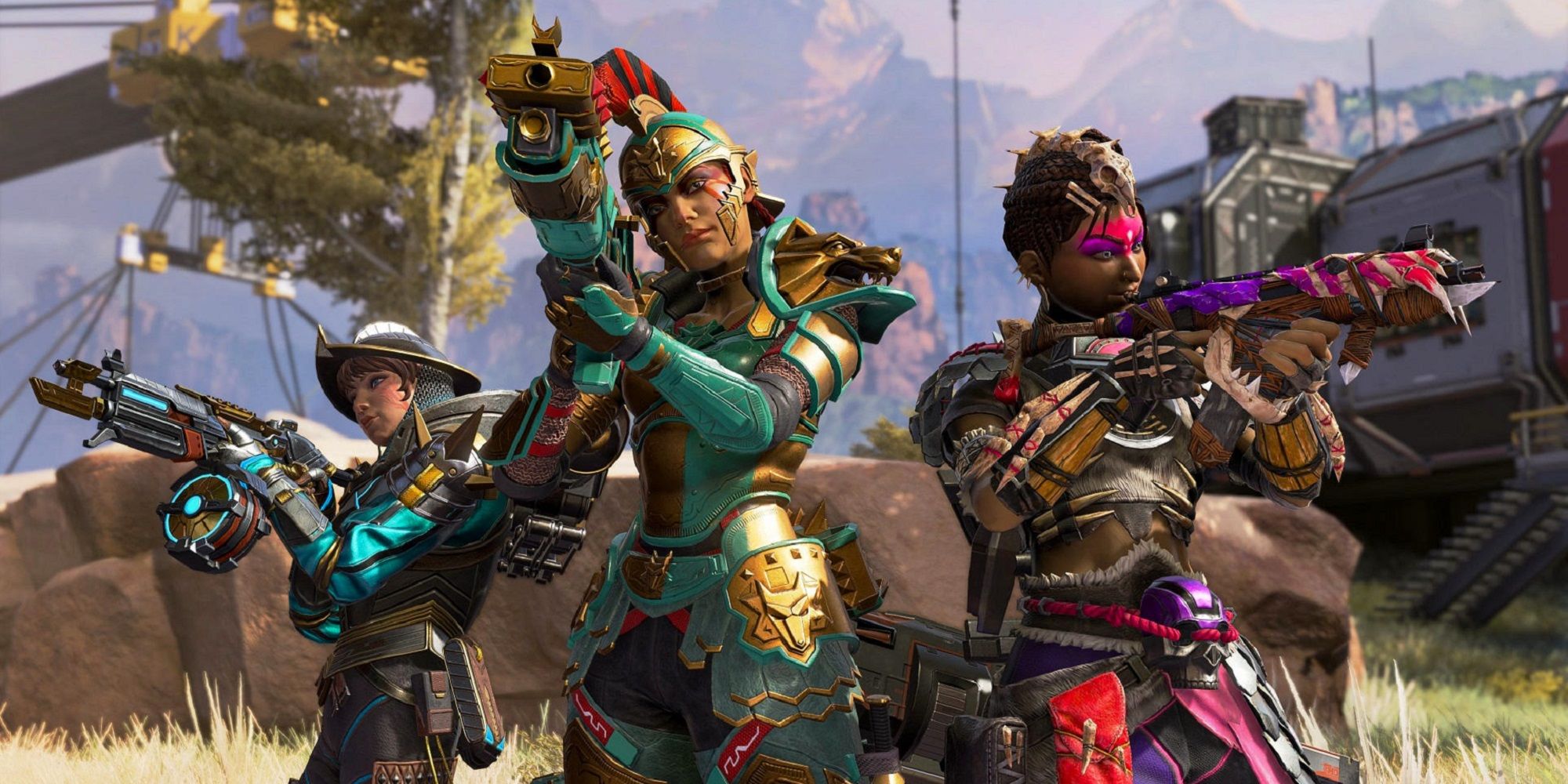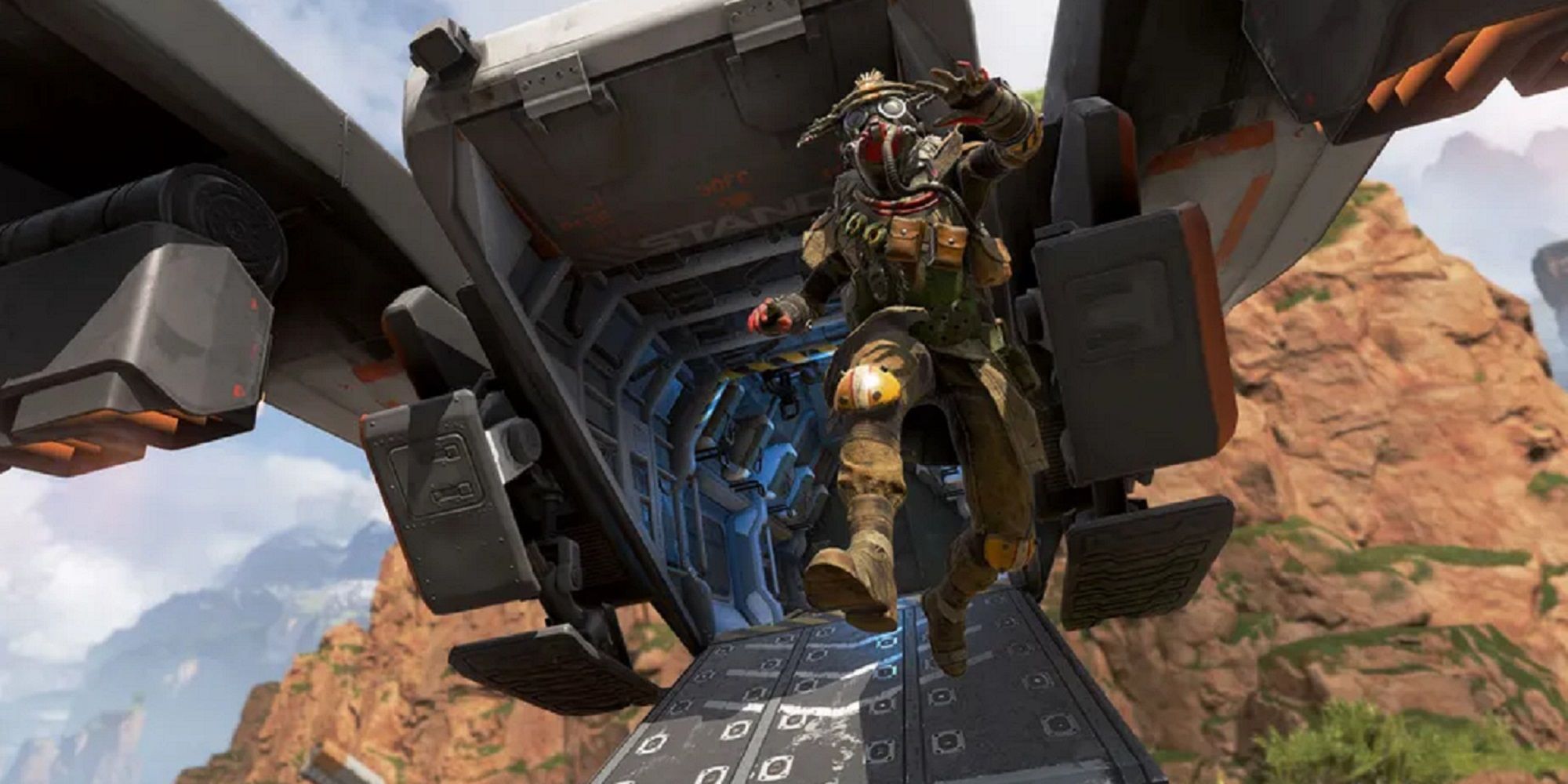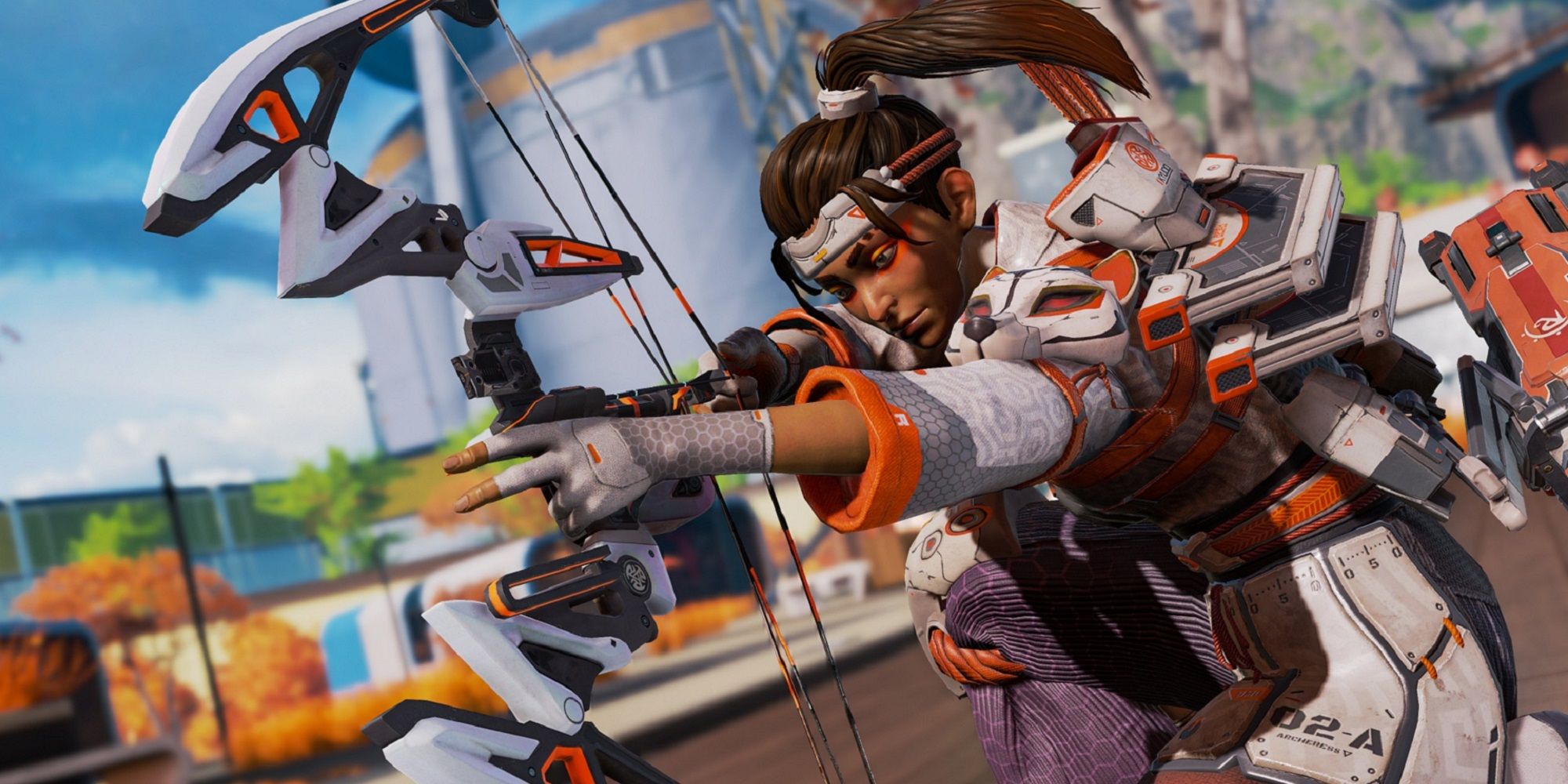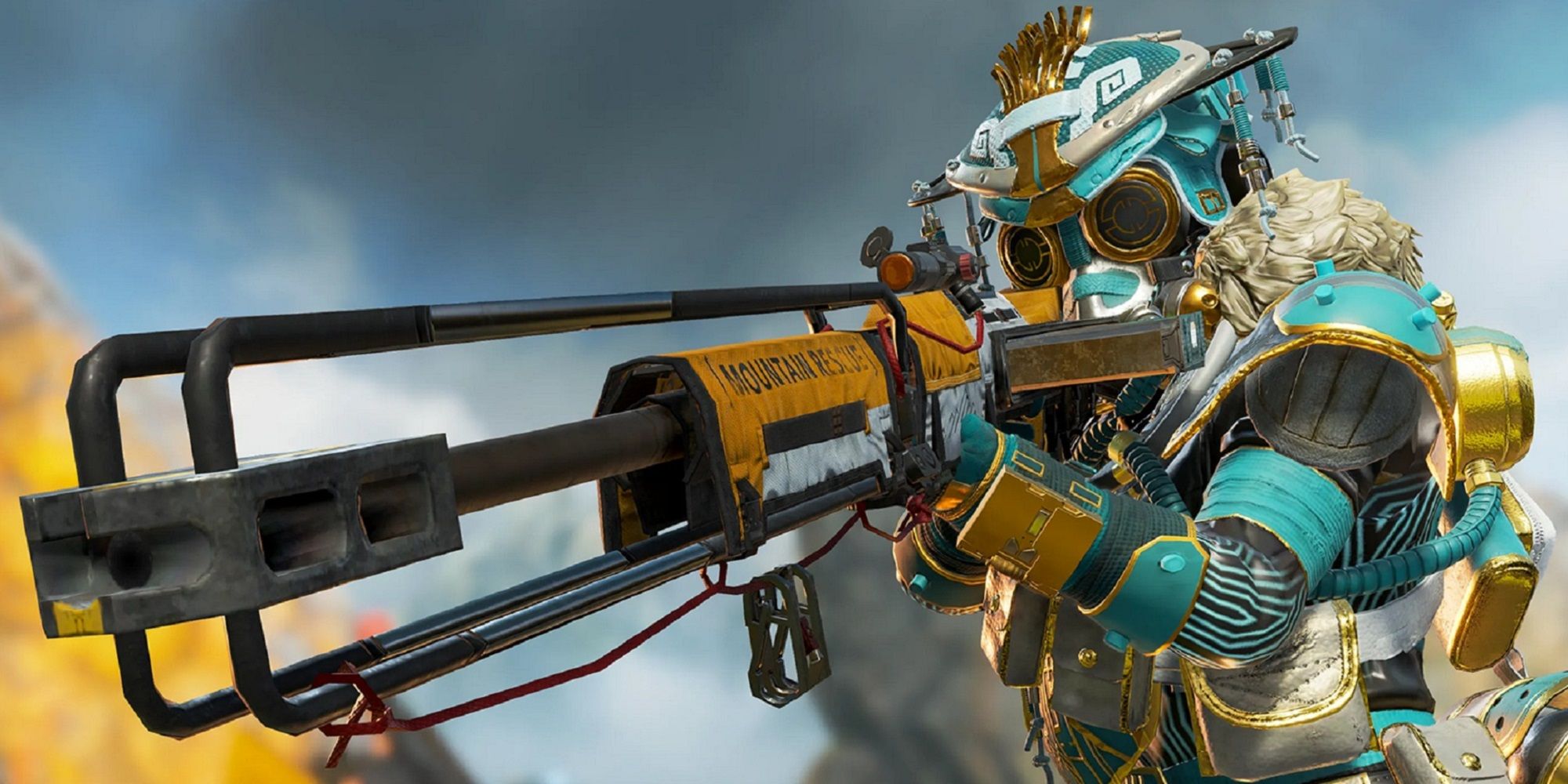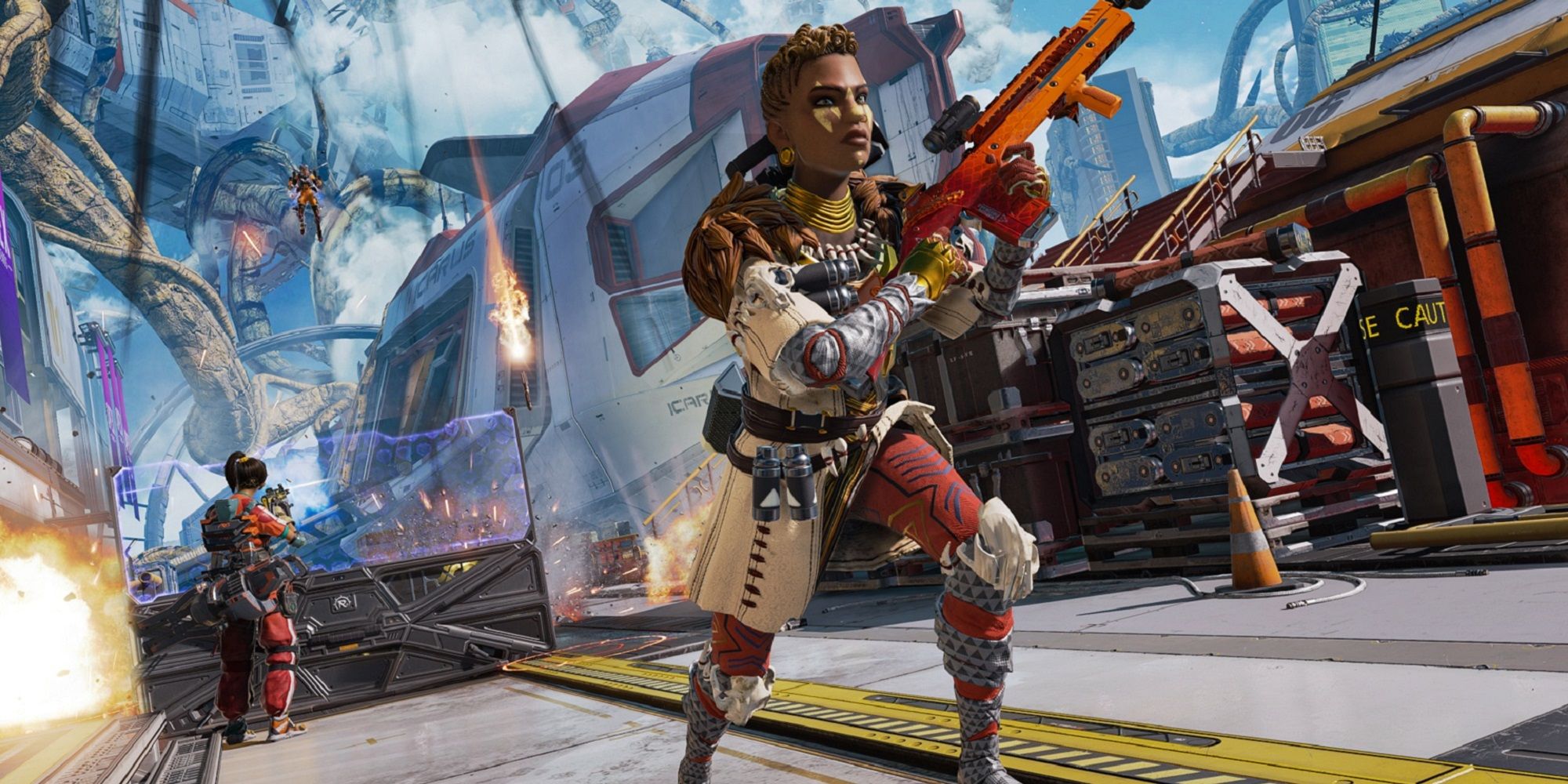Season 2 of the Apex Legends Global Series has so far gone ahead without too many hitches - covid aside. The cancellation of January’s in-person LAN event will likely lead the headlines for Apex Legends esports, but it was unavoidable. However, players and fans alike have been complaining about the points system that ranks players based on their match performance and ultimately crowns the winner of million-dollar championships.
Firstly I’ve got to explain which points system we’re talking about, because in Apex Legends esports there are three different scoring systems. No, I don't know why. Firstly, there’s the regular points system which scores teams based on how well they do in a match. The longer you survive out of the 20 competing teams, the more points you get: the winner of each round is awarded 12 points, second place 9, third place 7, and so on. Teams also get one point for every kill it makes, and these two scores are added together to create the leaderboard. The team with the most points after a specified number of games (usually six) wins the tournament.
However, in the ALGS Pro League, teams are given points based on their placement in this overall leaderboard. The top team gets 12 points again, second place gets 9, and so on. It doesn’t matter whether you came second by one point or 63 (both have happened), you receive the same reward for the overall leaderboards.
When it comes to major events, the Match Point rule comes into play. The teams play matches using the first points system mentioned above, but are only eligible to win the tournament once they’ve reached 50 points. After a team has reached that mark, it needs to win a round to be crowned winner of the tournament. This means tournaments can practically go on forever or be over in a handful of rounds, but neither extreme has occurred to date.
While the latter two points systems are controversial in themselves, today we’re here to talk about the main system, the first one I described in this article. While it’s now the established Apex Legends tournament scoring system, many pro players aren’t happy with it as they feel it doesn’t fairly represent in-game performance.
However, it’s hard to get this right. Battle royale esports have never cracked the formula for accurate scoring, as any system that favours placement or kills too highly will be abused. Many PUBG tournaments devolve into hide-and-seek because placement is more important for gaining points than kills. Call of Duty: Warzone’s tournaments are nearly all kill races, where placements don’t matter at all and often teams aren’t even fighting each other, instead seeing how many members of the public they can take out in the allotted time limit.
However, there is a suggestion that H1Z1 nailed battle royale scoring, so I was wondering whether the system could be effectively applied to Apex esports. Fans of the esport will argue against this, but from an outside perspective it seems like a good way of scoring battle royales. Of course, H1Z1 died a death and is now played by an average of 81 people a day on PC (I dread to think what the queue times are), but as an esport it is fairly well regarded, at least in battle royale terms.
The points system works as follows: teams get a point for every kill they score, and placement grants a multiplier bonus to those kills. The multiplier is 2x for first place, 1.5x for second to fifth, 1.25x for sixth to tenth place, and a brutal 0x for any teams that place 11th or lower. You also get 10 points for a melee kill rather than a regular one, but let’s ignore that for now because it’s wild.
This points system puts a lot of importance on kills, but the fact that the bottom half of teams get nothing even if they rack up a hefty hit list should stop matches from becoming kill races or stop teams from apeing too much and too early. However, once rounds are down to ten, would all strategy be out the window?
To give an estimation of what we could expect, I watched the first match of the H1Z1 Pro League from April 2018. You can watch the whole thing here, but I’ll break it down for you. In H1Z1 there are 15 teams of five players, and in this match it took 15 minutes for the first kill to be registered. However, when things heated up, the lobby was reduced from 40 players to just the winning squad in just two minutes. The slow start is fairly common in battle royale esports, but the final half of the lobby being eliminated in such a short space of time is quite frankly ridiculous. For comparison, in the final match of the NA ALGS Pro League between groups A and C, it took four minutes for the last 50 percent of squads to be eliminated - twice as long.
There are plenty of other factors to consider, but from the outset it seems like the points system promotes taking risky fights and pushing opponents in inopportune positions. Third parties and irrational decision making are the bane of pro players’ lives, so a more kill-focused points system might not be the best idea. Final circles in Apex Legends tournaments are hectic, sure, but we don’t want the round ending before we even get there because everyone has charged headfirst at each other.
Is there anything that Apex Legends esports could take from the H1Z1 scoring system? And no, not the ten-point melee kill mischief. After all, it seems like a good way of rewarding teams that kill opponents and place well. After all, wiping four entire teams is difficult in competitive Apex, but it’s easier if you’re not fussed about placing well. Getting kills and coming first is the most difficult skill to balance of all, and - in principle - H1Z1 rewards that.
Percentage modifiers for the number of kills could work, but there would likely need to be a larger range of percentages to encourage players to focus a little more on placements once they reach the top ten. However, this could increase the disparity between teams that finish one place apart and make things less balanced overall.
It’s worth noting that applying the scoring to Apex events retroactively is useless, because different criteria for gaining points will affect playstyles and potentially change results. For instance, a kill-based scoring system would ensure the Wattson meta would never return (Caustic could potentially be out, too, but Valk would continue her meteoric rise) and probably see the use of the slightly overpowered Rampage LMG increase further.
If we can’t apply any system retroactively to results, then it’s almost impossible to know whether it would work. However, a system that rewards teams for killing opponents and placing highly in matches is necessary if we want to ensure that Apex Legends esports to crown the best teams as winners and create a fun experience for viewers.
H1Z1’s points reward kills a little too highly for competitive Apex Legends - which at the highest level is very tactical and methodical - but there are definitely ideas that we can take from its innovative multiplier system. Apex’s points system needs to reward teams that do well in both points and placement if it wants to truly prove who the best players are - any decent roster at pro level can get either a bunch of kills or place highly, but it takes a truly skilled and synergised squad to achieve both in the same match. It’s a difficult line to tread: reward placement too highly and matches will be boring as everyone hides in corners, but reward kills too highly and tournaments become kill races and half of the tactical nous is lost.
H1Z1 doesn’t provide a clear answer for Apex Legends’ perceived points problems, but perhaps its innovative ideas provide food for thought for the head honchos at EA. Even if the ALGS stays the same, though, at least it’ll always be better than the Samsung Odyssey Invitational.

